Breaking into the Consulting Industry
My interest in management consulting began in the latter half of my undergraduate life sciences degree. It was a career path that promised a few intriguing aspects all-in-one – a collaborative environment, challenging projects which were at the heart of a business, and a fulfilling career as a result of positively impacting hundreds if not thousands of people. In addition, there was a clear parallel in the analytical thought process between consultants and scientists.
For instance, when both parties are faced with a problem involving data, they first perform an analysis of the available data, come up with a hypothesis on the cause, develop methods to test said hypothesis, and once a reasonable amount of data has been collected, they provide a set of solutions on the next set of steps. Given these parallels and the increasing demand for management consultants, the transition from the life sciences to management consulting has become a popular career option.
In preparation to enter this industry, pro-bono university consulting clubs were a popular first choice to get your foot in the door. These clubs worked primarily with startups and non-profit organizations across all phases of business strategy and over the course of three years, I was fortunate enough to join two consulting clubs. The first was the Volunteer Consulting Group (VCG) in the last year of my undergraduate degree. The project experience was quite unique as they were led by MBA students and the accompanying five consultants were undergraduate students that originated from a variety of university programs. Next, I joined the University Consulting Group (UCG) in the second year of my Master’s degree. In contrast to VCG, the vast majority of UCG consultants were graduate students and there were no restrictions on the background of the project lead. Projects in both clubs spanned no longer than 6 months, and the topics covered include revenue growth as well as boosting brand engagement.
Supplementary to consulting projects, case competitions were another way to refine one’s consulting skill set. Case competitions presented a business problem and within a limited time window, typically between 1 day and 1-week, you and your team were asked to come up with a unique solution to present to a panel of industry experts. Like client projects in VCG and UCG, brainstorming was one key aspect of a case competition; however, being resourceful in finding supporting evidence for your ideas and formulating the story in a presentable format was where the bulk of the time was spent.
Why Aspiring Consultants Should Learn Data Science
Towards the end of my Master’s degree, I was confident that I would continue into management consulting. I had spent the last few years of university building up relevant experience and I got so far as the first round of interviews before I decided to switch gears and commit to a data science bootcamp instead.
The reason for this decision was because what I truly enjoyed the most about consulting was its data-driven nature. A project’s direction is dependent on the initial set of analyses performed and the gathered data is what is used when determining a viable solution. However, as I became further engrossed in the management consulting industry, I learned two things: 1) While management consultants love their data, the vast majority are limited to intermediate data skills with excel and typically leave more complex analyses to a team of data specialists; and 2) Aside from most surface-level analyses, the bulk of a management consultant’s time is spent communicating with the client and preparing the presentation of solutions.
With a clearer understanding of my inherent interest on the data side, management consulting almost instantaneously became a less appealing industry to enter into, especially with frequent news of companies continuing to grow their in-house data science teams and leveraging big data to guide their future decision-making. That said, if I wanted to stay open to the consulting path in the near future and adjust to the increasing demand for data skills, I believed that becoming data-savvy was necessary. As a result, I chose a data science bootcamp to further my data skills as quickly as possible.
Why Did I Choose WeCloudData Over Other Data Science Bootcamps?
After reading up on all full-time data science bootcamp programs in Toronto, it was clear that they covered very similar topics. Moreover, one point of hesitancy that I had about doing a bootcamp was whether it was actually possible to be job-ready in as little as 12 weeks. As someone coming from a non-technical background (i.e. little to no coding experience), this accelerated timeline seemed too good to be true. On the other hand, it may be only realistic to those with prior experience in the data industry.
That being the case, when I found that WeCloudData offered students up to two real-world client projects as a part of their data science bootcamp, this alone helped to solidify my decision that they were the right choice over more well-known names in the space. This was because the client projects act similar to a co-op term; students are able to work with a client for a few months, understand their data needs, and apply – as well as expand on – what they have learned in the bootcamp to deliver a data solution. Furthermore, for those without prior data experience, these client projects provide a tangible outcome worth showcasing on one’s resume as opposed to a generic in-class project without any direct business impact.
Key Takeaways from the Bootcamp Experience
Being a student in a full-time bootcamp was nothing like I had previously experienced. Most weeks were filled with 12 to 14 hour days due to how condensed the material was. Weekends were also spent catching up on older content or preparing for the following week. At the end of the 14-weeks, I was amazed at how much material I was able to soak in – from two coding languages, machine learning, and even some of the major topics at the forefront of big data. Despite this, it seemed like I was only scratching the surface of what there was to learn in data science.
The client projects I actively worked on delved into topics such as recommender systems, natural language processing, and customer segmentation. Given the limited timeline and density of the material covered in the bootcamp, each of these topics received, at most, only two to three lectures worth of material. Consequently, it wasn’t until the client projects until I was able to more fully understand how these use cases were approached from a data science perspective and deployed into the real world. Furthermore, one aspect that surprised me the most while on these projects was the difference in the student and client expectations on the model building side. For instance, students placed on these projects inherently want to apply the latest and greatest set of algorithms – myself included – as these will likely lead to the best set of results. However, due to obvious time constraints from the business side, choosing less complex models was often necessary as they take significantly less time to run and were relatively easier to interpret for the client without many dips in performance.
My Role in Advancing Student Learning and the Project Experience
Now an official member of the WeCloudData team, one of my primary responsibilities lies on the student learning side as an assistant instructor. As its name suggests, there is some live instruction involved in the form of lectures and tutorials; however, most of my time is dedicated to office hours in the afternoon. During this time, students can drop in and ask questions about lectures, assignments, and projects. This is also a great opportunity for assistant instructors to build rapport with students as well as for students to share things they have learned with their peers.
Alongside my role as an assistant instructor, my second responsibility as a project manager aims to enhance the student experience while on their client projects. To accomplish this, I act as the main point of contact between the client and the students, as well as guide students over the course of the project with regards to best practices and management of weekly tasks. By handling these aspects of the project, students are able to focus on working directly with the client to meet their data needs as well as continue to refine their own data science skills on a regular basis in preparation to enter the industry.










